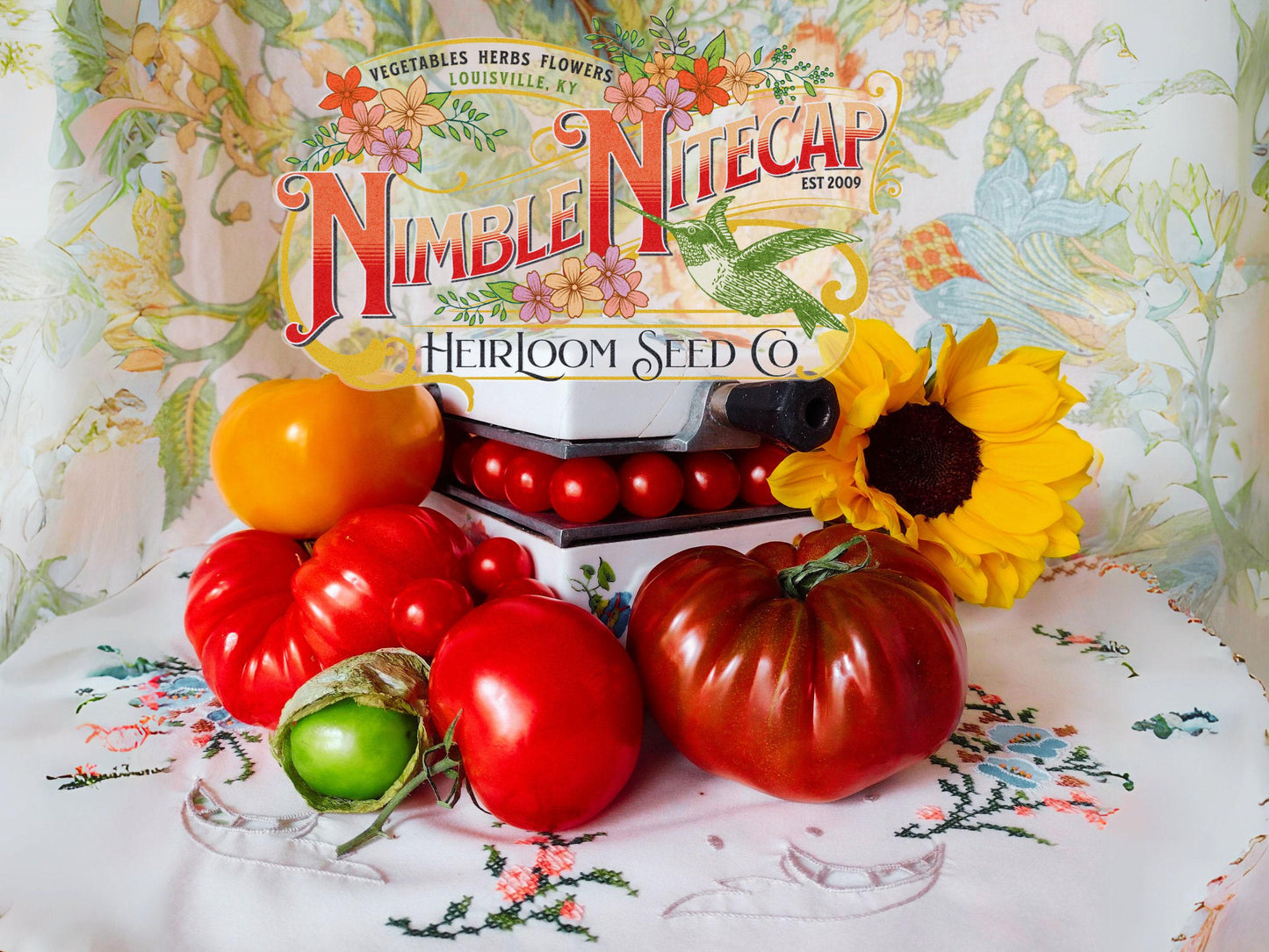Autumn Beauty (Helianthus annuus) is a stunning, multi-branching heirloom sunflower variety that brings the warm hues of fall to your garden. With flowers ranging from 5 to 8 inches wide, these sunflowers showcase a beautiful mix of autumnal colors, including orange, yellow, gold, and maroon bi-colors, all accented by rich brown centers. Reaching a height of 6-7 feet, Autumn Beauty Sunflowers are known for their long blooming period, producing an abundance of blossoms that are perfect for creating vibrant fall arrangements. Ideal choice for borders, garden beds, and as a stunning backdrop in your landscape.
Common Names: Autumn Beauty Sunflower
Latin Name: Helianthus annuus
Type: Flower
Life Cycle: Annual
USDA Zones: 2 - 11
Stratification: Not required
Germination Ease: Easy
Sunlight: Full Sun
Moisture: Prefers well-drained soil; tolerates drought once established
Soil: Rich, well-drained soil with a pH between 6.0 and 7.5
Height: 6-7 feet
Spread: 2-3 feet
Color: Mix of orange, yellow, gold, and maroon bi-colors with brown centers
Bloom Season: Mid-summer to fall
Companion Plants: Ideal companion for corn, squash, and cucumbers. Provides shade and support, and attracts pollinators.
Potential Toxicity: Non-toxic to humans and pets
Climate Adaptability: Highly adaptable to a range of climates within USDA zones 2-11
~ Sowing ~
When to Start Inside: Not typically recommended, as sunflowers prefer direct sowing outdoors.
When to Start Outside: Direct sow seeds in the garden after the last frost when the soil has warmed.
Sowing Instructions: Sow seeds 1/2 inch deep in well-drained soil.
Planting Depth: Sow seeds 1/2 inch deep.
Watering: Keep the soil consistently moist until germination, then water regularly to maintain growth.
Light and Temperature: Autumn Beauty Sunflowers thrive in full sun and warm temperatures, ideally between 70-85°F (21-29°C).
Germination: Seeds typically germinate in 7-14 days under optimal conditions.
~ Transplanting Seedlings Outdoors ~
Timing: Direct sowing is preferred, but if started indoors, transplant seedlings outdoors after the danger of frost has passed and when they have developed at least two sets of true leaves.
Location: Choose a sunny location with well-drained soil.
Spacing: Space plants 18-24 inches apart to allow for adequate air circulation and growth.
Transplanting: Handle seedlings carefully to avoid disturbing their roots. Water well after transplanting to help establish the plants.
~ Growing ~
Watering: Water regularly, especially during dry periods, to ensure consistent growth and flowering.
Fertilizing: Apply a balanced fertilizer or compost at planting time and again as the plants begin to flower.
Pest and Disease Management: Autumn Beauty Sunflowers are generally pest-resistant but may attract pests like aphids or caterpillars. Monitor plants regularly and use organic pest control methods if necessary.
Maintenance: Deadhead spent flowers to encourage continued blooming and maintain a tidy appearance in the garden.
~ Harvesting ~
When to Harvest: Harvest flowers when they are fully open for the best color and vase life.
How to Harvest: Use sharp scissors or garden shears to cut the stems at the desired length, ideally in the morning when the plants are fully hydrated.
Drying and Storing: Autumn Beauty Sunflowers are best used fresh as cut flowers. For dried arrangements, hang stems upside down in a cool, dark, and dry place until fully dried.
~ Seed Saving ~
Allow some flowers to go to seed. Once the seed heads have dried, collect the seeds and store them in a cool, dry place for future planting.
~ Additional Information ~
Forage for Pollinators: Autumn Beauty Sunflowers attract bees, butterflies, and other beneficial pollinators.
Origin: Native to North America, sunflowers have been cultivated for centuries and are cherished for their beauty and versatility.
Nomenclature: The genus name "Helianthus" comes from the Greek words "helios" meaning sun and "anthos" meaning flower, reflecting the sunflower’s habit of turning its head toward the sun.
History: Sunflowers have been grown and revered for their beauty, utility, and symbolism. Autumn Beauty Sunflowers are particularly valued for their rich colors and late-season blooms.
Potential Toxicity: Non-toxic and safe for humans and pets.
Climate Adaptability: Autumn Beauty Sunflowers are adaptable to a wide range of climates and are especially valued for their resilience in various growing conditions.













